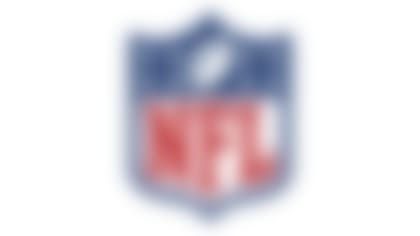The NFL's chief medical officer, Dr. Allen Sills, who is spearheading the league's response to the new coronavirus pandemic, said widespread testing would have to be available before the reopening of the league could be contemplated. He cautioned against assuming that earlier comments from league officials about the league's focus on starting the season on time mean it will definitely happen.
"I don't think that I would interpret those comments to say that that is absolutely what's going to happen," Sills said in a telephone interview Thursday.
Earlier this week, Jeff Pash, the NFL's general counsel, said the league's focus is on playing a full 16-game regular season that kicks off on time in September with games played in front of fans.
"I would say that's everyone's hope, that we are in a position to do that," Sills added. "But the reality is none of us know those facts for certain right now. We hope and pray for the best and prepare for the worst, realizing that is one potential outcome that we will be back fully in business playing games as normal in front of fans on schedule. But it's certainly not the only outcome. And I think what was implied there was to say we are not at a point where we are saying that is absolutely not going to happen so we should continue our planning and preparations as if we're going to be able to do that. But obviously we're going to have to evaluate that along the way. And follow what the recommendations are from public health officials and from our infectious disease experts and others."
The widespread availability of point of care testing -- where a test could be administered, and the results returned quickly -- will be critical to decisions about when teams can report to facilities, Sills said. Such tests would have to be administered to players and other team personnel, perhaps frequently. Those tests are not currently available. Sills said he is confident they eventually will be, but he can't say when. Another consideration: The league will have to make competitive balance decisions about allowing facilities to re-open if there are more stringent lockdown rules in place in some parts of the country than others.
"As long as we're still in a place where when a single individual tests positive for the virus that you have to quarantine every single person who was in contact with them in any shape, form or fashion, then I don't think you can begin to think about reopening a team sport," Sills said. "Because we're going to have positive cases for a very long time."
Sills said it is too early to say how large groups of fans would be handled until a vaccine is available. Last week, one team owner wondered if the country will be at a point where it is comfortable having 80,000 fans in a stadium. With the NBA and NHL seasons paused and Major League Baseball waiting to begin, the question of whether games might initially have to be played in empty stadiums has circulated. In the United States, the NFL and its players' union -- who are closely consulting on the issue -- will be the last major sports league that has to decide.
"We will make those decisions in consultation with our experts at the time," Sills said. "That decision will not be made in isolation. The NFL will not be charting a course different than other professional sports, other parts of society -- college sports, universities, businesses."
"None of us can predict that," Sills said. "We can look at various models and prepare for different scenarios. We're just going to need more time before we know what the right thing to do is."
Sills said there is no timeline for when a decision has to be made about whether the regular season could start on time. But he noted that with the offseason workouts disrupted -- and with players even unable to work out at gyms -- there will have to be considerable time set aside for players to get back in shape before they can play games. There will clearly be no in-person offseason program in April and the league is considering having virtual workouts and classroom sessions to make up for the lost work of OTAs. The league is even talking to those who were involved in the league when it returned from the lockout in 2011 about what they learned about injuries and conditioning. Players had no offseason program and had to report to training camp days after the new collective bargaining agreement was completed, although gyms were available.
"There's no way to recreate a four-month offseason program in the span of week or two," Sills said. "When you think about resuming something like football, everyone understands there needs to be some time to acclimatize to activity and train back to the level of physical fitness just to be able to think about more football specific work. That's part of the timeline you have to plan for. The longer we're away from all football activity, we'll have to adjust that timeline of preparation as well."
In the meantime, the NFL is concentrating on providing medical care for players who have had offseason surgeries and for those who may become infected by the virus. And they have emphasized to players the importance of paying attention to mental health issues at a time of great anxiety and stress.












